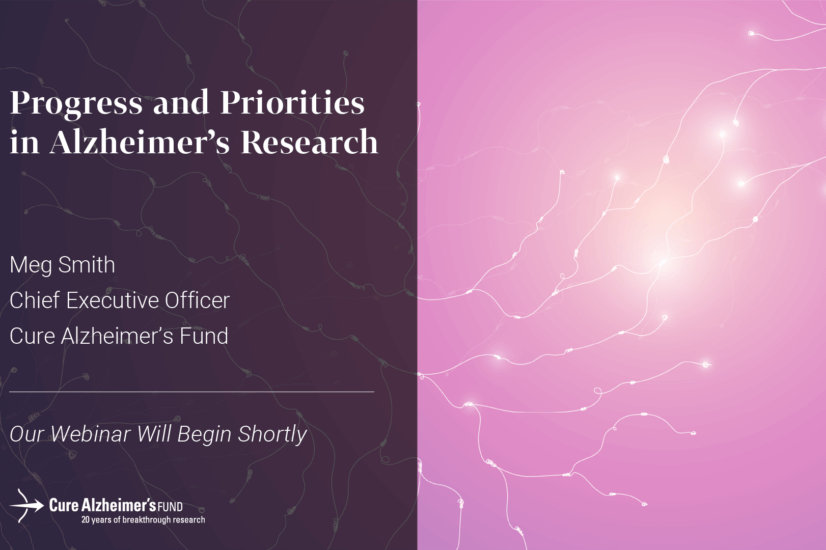The angiotensin-converting enzyme (ACE) causes blood vessels to narrow, increasing blood pressure. Patients with AD show higher levels of ACE in their brains. The Alzheimer’s Genome Project identified rare variants of the angiotensin-converting enzyme (ACE) that were associated with AD. One of these mutations increased the levels of the ACE1 protein in neurons of the brain and induced neuroinflammation and neurodegeneration. This research investigates the relationship between neurodegeneration and ACE1, and the potential impact of FDA-approved blood pressure medications—ACE inhibitors—already proven safe as potential treatments for Alzheimer’s disease.
This study was a result of a productive collaboration that included CureAlz researchers from Northwestern University in Chicago, Leah Cuddy, Ph.D., and Robert Vassar, Ph.D., and Boston-based scientists, Winston Hide, Ph.D. and Rudy Tanzi, Ph.D. The results appeared in the prestigious scientific journal Science Translational Medicine.
“There are three mysteries of Alzheimer’s disease that really are enigmatic: why age is the primary risk factor, why women have an increased susceptibility for developing Alzheimer’s, and why there is selective death of neurons in regions of the brain that are important for memory. And our study, I think, provides some insight into those three mysteries,” said Dr. Vassar in a press release.
To begin, using CRISPR genome editing, the team engineered a novel transgenic mouse strain that carried the newly identified ACE mutation (R1279Q) associated with familial Alzheimer’s disease. Studies revealed that the mutation did not influence blood pressure, but instead mutant ACE had an impact in the brain.
The mutation increased ACE levels in neurons, and the levels were further elevated as the mice aged. The scientists also observed that because of the mutation, aging mice developed atrophy in a specific part of the brain important for memory – the hippocampus. Female mice were affected more severely than male mice. Mutant mice treated with drugs that block ACE signaling and penetrated the brain displayed neurodegeneration.
Next, the scientists assessed the mutation in the context of AD. They crossed mice with the ACE mutation with another mouse strain that is engineered to overproduce amyloid beta. In this study, the ACE mutation accelerated the expected neurodegeneration and neuroinflammation.
To translate their findings to humans, the research team examined ACE levels in postmortem brain samples from AD patients without the mutation. The researchers found that ACE was also elevated compared to healthy controls.
This research showed, for the first time, a potential mechanism of certain blood pressure lowering medications, like ACE inhibitors, and a reduced risk of AD. Taken together, the results of the paper provide compelling evidence to suggest that with age, increasing ACE levels in the brain may be a precipitating factor in AD neurodegeneration and may also provide a rationale for how repurposed ACE inhibitors may lower the risk for AD.
Published Paper: Science Translational Medicine
https://www.science.org/doi/10.1126/scitranslmed.aaz2541?url_ver=Z39.88-2003
The Press Release for The Study:
https://news.feinberg.northwestern.edu/2020/10/16/study-provides-insights-into-the-development-of-alzheimers/
Leah Cuddy, Ph.D., Northwestern University; Winston Hide, Ph.D., Beth Israel Deaconess Medical Center; Rudolph Tanzi, Ph.D., Massachusetts General Hospital; and Robert Vassar, Ph.D., Northwestern University







